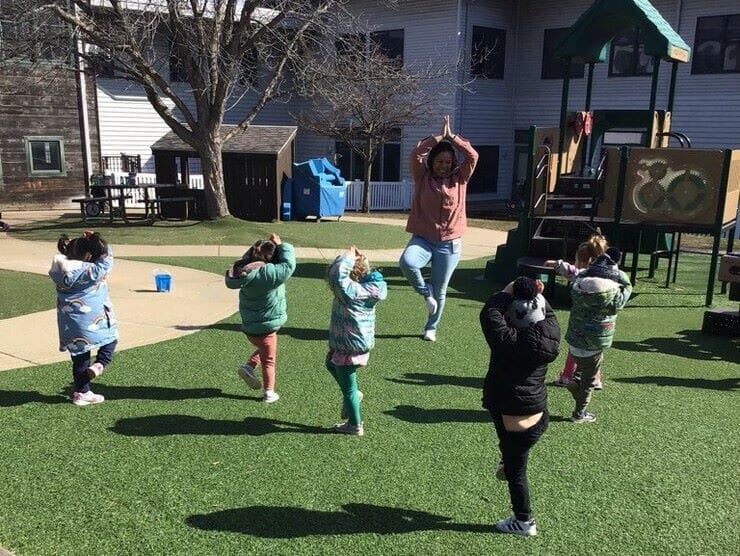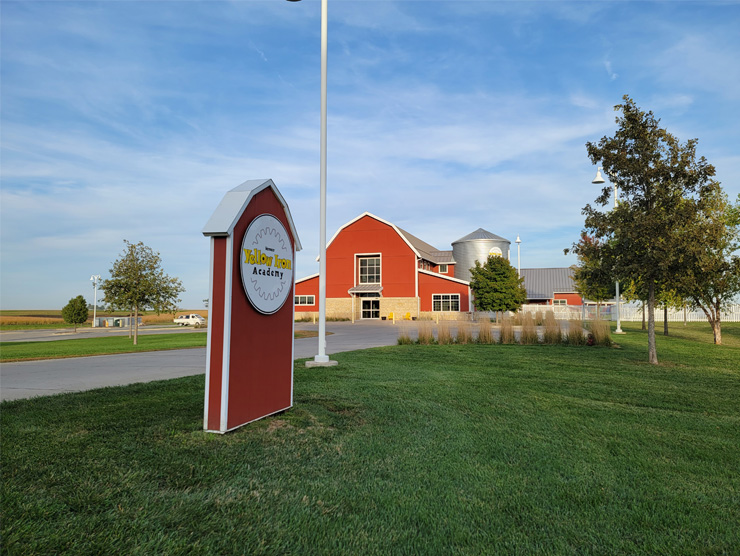As one of the largest non-franchised operators of collision repair centers in the U.S., the Boyd Group faces fierce competition for talent. Their subsidiaries, which include names like Gerber Collison & Glass, Glass America, and Gerber National Claim Services, all rely on skilled workers to help them thrive in highly specialized fields. However, their industry is plagued with turnover, as employees regularly change jobs for minor salary increases. The Boyd Group knew it had to do something to help their business stand out from the competition and keep top talent in-house. Thus, they decided to implement new care benefits to reduce churn, attract new employees, and improve the everyday lives of Boyd’s 10,000+ employees. We sat down with The Boyd Group’s Vice President of Total Rewards, Jami Emmons, for a brief interview to hear about the culture shift she has witnessed and helped to pioneer in just two short years at the company.
What kind of culture are you trying to create for your employees at the Boyd Group?
DEI is a huge priority for us right now. Inclusion especially is a really big point of emphasis because diversity and equity cannot be attained without first achieving inclusion. By 2025, we will aim to have 35% of our new hires in entry level positions to be from underrepresented populations to better reflect the populations in the communities that we serve. We want to create an environment that people of all different backgrounds want to work in.
In the past few years, we’ve also become a big supporter of the Women’s Industry Network (“WIN”), a non-profit organization designed to support and enhance the role of women in the collision repair industry by promoting education, professional advancement and networking. While statistically we’re only about 20% female, women play a major role in our workforce. They’re technicians. They’re estimators. We have general managers who are women. The stereotype in our industry is that it’s all men, but we do employ a lot of highly skilled women. A big focus for us right now is trying to increase the number of women in this industry. To that end, we’ve formed an internal Boyd WIN Council, an employee resource group (ERG) established and led by women. The WIN Council connects women in the company to help cultivate a diverse and inclusive workplace, serving as a safe space for employees to share their experiences with peers and mentors. Membership to our women-led employee resource group has more than doubled in the past 12 months, and the positive impact created by our members is rippling through the organization.
What are some of the challenges you face in recruiting and retaining talent?
There are only a few big players in our market, so the competition for technicians, estimators, and even general managers is very intense. We tend to see people leave for just a few dollars extra an hour. So, we've spent a lot of time in the past year or so really thinking about our total rewards strategy and the benefits we need to keep people from leaving for that minor salary increase. That effort is really starting to pay off now. One of our general managers recently told me that when someone is considering leaving the shop, the first thing he does is talk to them about our benefits and how they compare to our competitors. So this has been a very positive step forward for us and people are now recognizing that we’re a leading benefits provider in our industry.
You just mentioned your total rewards strategy. Could you explain what that is and how it relates to your overall benefits plan?
When we think about benefits, we want to ensure that they address the whole person. That’s what total rewards is – holistic benefits for every employee. And so, we established our “Three Pillars of Wellness,” which are physical wellness, financial wellness, and emotional wellness. Physical and financial wellness benefits are easier to implement. Emotional wellness is a bit trickier. We had to sit down and really think about what we could do as employers to take away people's stress and worry, both at work and at home. And it just became obvious that the answer was back-up care.
You passionately led the initiative to add back-up care to your total rewards offering. Why did you want to implement that benefit specifically?
I can actually tell you the exact moment when we first started thinking about back-up care. We got a phone call from a regional vice president, who said one of their estimators couldn't come in to work that day because she didn’t have daycare. Her mom had COVID so her usual care provider was suddenly unavailable, and she had to quit because her child care needs weren’t met. Back-up care is our way of ensuring that situation never arises again.
This isn’t a typical office environment. We need people physically at work every day talking to customers and doing the estimates. Work-from-home really isn’t an option for us, so benefits like back-up care help to ensure people are able to come into the shop every day. It also helps us recruit more women to all our roles as we look to the future.
Knowing that your kids, your parents, even your pets are being taken care of by someone you trust removes a major stressor from your life. Back-up care really allows our employees to have that peace of mind and be able to focus on work while they’re at work, and family while they’re at home. It has become the cornerstone of our emotional wellness plan.
The Boyd Group provides every type of back-up care, including child care, elder care, and even pet care. Why do you feel you need such a comprehensive array of coverage options?
It just goes back to inclusiveness and having an open environment for everyone. We’re accepting of everyone and that means being accepting of all different types of families. No two employees are the same and not all families have the same needs. A Gen Z employee might not need any back-up care beyond a dog sitter, but Baby Boomers and Millennials may have an aging parent or relative that they’re caring for. And of course, child care is always going to be a need. Priorities and needs differ depending on what stage of life you’re in and we have to be flexible to accommodate everyone.
You have a dispersed workforce, many of whom are deskless. How do you communicate effectively with your entire team?
We try to reach our people in a few different ways. We've recently started using personal email addresses, which is a new development for us. We also rely on our general managers to disseminate information. Every morning, the general manager has a huddle where they talk about what needs to be done during that day, plan out the cars that need to be worked on, and communicate who’s doing what in the shop. We also have TVs in the shops that play important messages, and even do some home mailings because our technicians often do not have email addresses. So it’s just about using these different tools at our disposal to ensure everything is communicated effectively.
How important has partnering with vendors been to achieving your total rewards and HR goals? What factors do you consider when choosing a new vendor to work with?
Vendors are hugely important because they provide the infrastructure and the knowhow to help us achieve a lot of these goals we set. With any vendor, you want to look at their reputation and their longevity. For example, Bright Horizons was around when I was looking for daycare for my daughter, who is now 22-years-old. So, you have this brand that is recognized, that is respected, and that’s hugely important to us. Our people do not want to give their children and family members over to someone who doesn’t have an outstanding reputation and a history of quality care.
Overall, how have these new benefits been received by your employees? What feedback are you getting?
Our overarching goal when we first started re-thinking our benefits strategy was to provide services that really make a difference and bring value to our employees’ lives. I talked to our CEO and we put a lot of things, like back-up care, in place to add to our new benefits package. Fast forward a few months; I’m in a shop talking to the workers there and everyone is saying that our benefits are really great. They’ve been very well-received and have been excellent for employee morale and longevity within our company.
Thank you to Jami for taking the time to speak with us about all the wonderful benefits she’s helped to implement at the Boyd Group.



